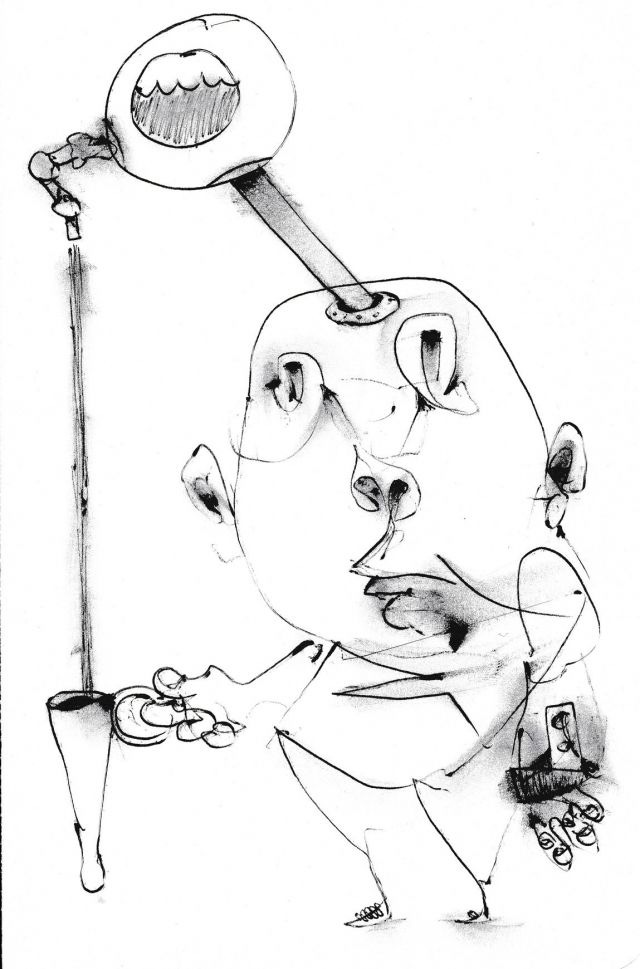The Plot Twist
Maddd Science

This article holds spoilers for The Sixth Sense, although, if you haven't had The Sixth Sense spoiled for you, have you really lived?
The science of the plot twist: How writers exploit our brains
Vera Tobin, The Conversation
When we know the resolution of an event – whether it’s a basketball game or an election – we tend to overestimate how likely that outcome was.
Information we encounter early on influences our estimation of what is possible later. It doesn’t matter whether we’re reading a story or negotiating a salary: Any initial starting point for our reasoning – however arbitrary or apparently irrelevant – “anchors” our analysis. In one study, legal experts given a hypothetical criminal case argued for longer sentences when presented with larger numbers on randomly rolled dice.
How A Teenage Girl Became the Mother of Horror
Maria Pilar Queralt, National Geographic
In her later years, widowed and careworn, Mary Shelley became notably less radical in her philosophy than when she had written Frankenstein as a teen. Revising the work for the 1831 edition, she made significant changes to the underlying ideas of the plot. In the first version Dr. Frankenstein makes the creature in the spirit of free, scientific curiosity; his sin is that he then refuses to love and nurture him once he comes to life. The later edition portrays Dr. Frankenstein as a victim of fate; much of the science behind the creation of the creature comes about through chance.
How the TV Landscape Teed Us Up Perfectly for True Crime
Jen Chaney, Vulture
I think the addiction to these shows continues to grow because they tap into some key aspects of the way we watch television in the 21st century. True-crime series combine elements of one of TV’s most resilient genres — the procedural — with key aspects of the kinds of shows emblematic of the new golden age of television, or Peak TV, or whatever the hell we’re calling the current era of broadcast and streaming content: specifically, the mystery box show and the prestige drama. TV has basically trained us for this true-crime moment.
Why fake dating is a great romantic trope, explained by To All the Boys I’ve Loved Before
Constance Grady, Vox
Fake dating is the have-your-cake-and-eat-it-too of romantic tropes. It grants audiences all the satisfaction of seeing the central couple in an established, domestic relationship, but it doesn’t deflate the will they/won’t they tension because you are always waiting for the two fake lovers to realize that they’re actually really in love. It’s a trope that lends itself equally well to both fluff and angst.
Nostalgia Is Gaming's Biggest Trend
Lewis Gordon, The Outline
Tanglewood takes video game retromania to its arguable zenith. The game was created by Matt Phillips using almost exactly the same original development tools from the 1990s. Phillips ran the Cross Products SEGA MegaCD development kit (made in 1993) on a rickety Pentium 2 PC running Windows 95, writing the game’s code in Notepad++ For Win95. When he wasn’t working on the game from his home, Phillips was on the train running all of the above through an emulator on his laptop. Such an approach is a far cry from modern video game development carried out on hulking supercomputers, where finely tuned applications aid an increasingly atomised production process.
The Encyclopedia Of Science Fiction Is The Best Place On The Internet
MH Rowe (no relation), Literary Hub
Of all the things you can read on the internet, The Encyclopedia of Science Fiction is one of the only good ones. In perpetual conversation with itself, ever growing and expanding—perhaps threatening, in its accumulated obsessions, to become self-aware—this index of the fantastic documents possible pasts and futures alike. It bristles with Tarzan arcana and the history of Croatian science fiction. It features enthusiastic discussions of Medieval futurism, feminism, bug-eyed monsters, dream hacking, and Leonardo da Vinci. Almost any sci-fi author you care to mention has an entry there, alongside accounts of many authors no one cares to mention at all. That you could be reading it right now goes without saying, since in some alternate universe you surely are.
How the Paradox of the Term ‘Original Series’ Explains the Video Industry
Matthew Ball, REDEF Original
Netflix, however, brandishes the term “Original” as a weapon – not just as a calling card or audience aid. The company boasts that it will launch 700 total original series in 2018 (or 14 per week) and offer more than 1,000 by the end of the year. This raises the question of what, exactly, is an “Original” – and how could Netflix possibly produce twice the number of originals of the entire US television industry? The answer is simple: “Original” isn’t a technical definition but a marketing one. And thus not only is the definition of “Original” vague, it also differs from network to network. And no one has a wider definition than Netflix.
How Apps Are Changing the Fiction Market – and Why Thrillers Lead the Way
Me, Tech.Co
The fiction app can take many different forms, but it runs on the same principles that power the rest of the internet. The stories tend to be fast-paced and delivering more dynamically than just words on a page. Readers can interact with the story in some way, either through video and audio options or by impacting what happens next.
Next Week on Maddd Science: The Story Behind the Film